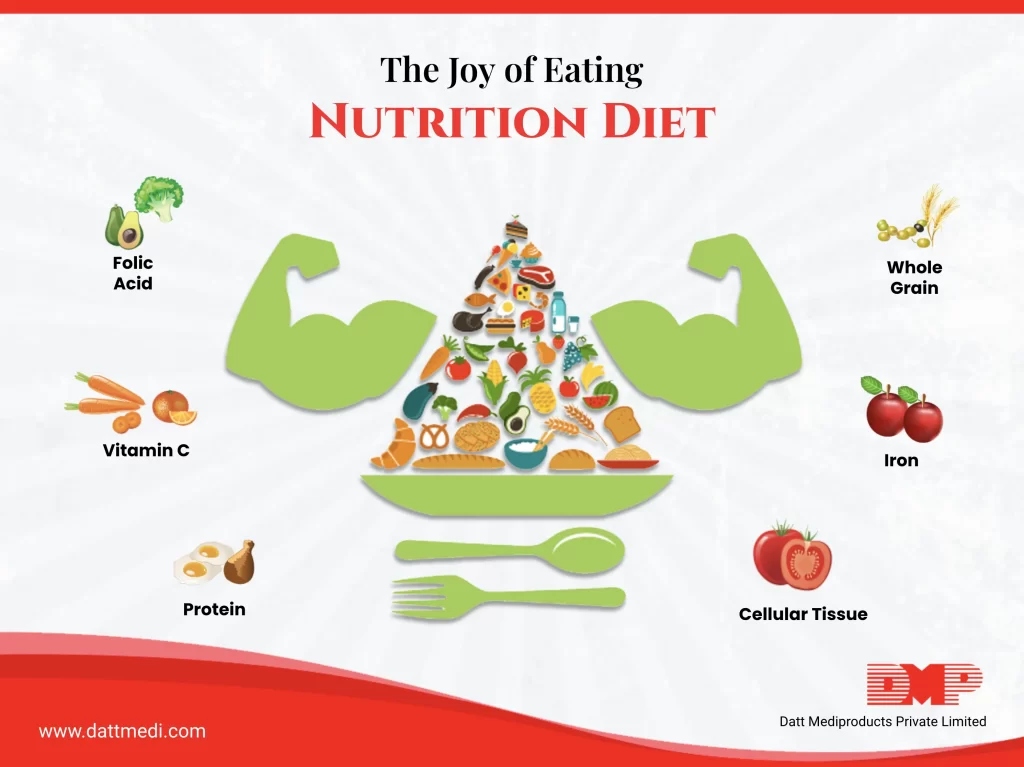
Do you feel a little tired or feel pain in your stomach when you wake up in the morning? Are you suffering from health issues like indigestion? If so, then this can be a sign of an unhealthy diet.
To maintain a healthy body, you need to follow a balanced diet. Now if you are wondering what consists of a balanced diet, let’s first find out how Nutrition helps our body.
The term balanced diet refers to the consumption of all the nutrients our body requires, to function properly, in the correct proportions. Different nutrients have different purposes to fulfill.
The deficit of any one nutrient in the body can lead to problems. It is, therefore, advisable to consume all the nutrients in correct proportions, to make sure that the body derives the utmost benefit out of the meal.
Importance of a balanced diet:
1. Proper nutrition to the body makes a balanced diet, and this helps a person to remain active and fresh all day long.
2. A balanced diet not only fixes stomach problems but also strengthens the immunity power of a human body.
3. A healthy lifestyle is also easy to achieve through the maintenance of a balanced diet.
4. Reduction and control of high levels of stress, anxiety, depression and emotional problems can also be possible by following a balanced diet.
Elements that form a balanced diet
Proper intake of proteins, vitamins, minerals, carbohydrates, and fats every day makes a balanced diet. Now, if you are searching for a rough estimate about what kind of nutritional food you must take every day to maintain your balanced diet, then they are as under-
– Carbohydrates- a person should get 45%-55% of their daily calories from carbohydrates. Try to have healthy carbs like bread, lentils, beans, brown rice, etc.
– Proteins- 12% to 40%of calories must come from proteins. Foods like meat, fish, egg, etc. are rich in proteins.
– Fats- you should have an intake of 20% of fat every day.
– Vitamins and minerals- milk, citrus fruits, and sprouts are rich in vitamins and minerals and are needed by 8 to 10 mg every day.
– Water- one must drink 2-3 litres of water every day.
Be careful about your fat consumption
Fat is an essential requirement for the body so as to ensure its all-round development. But there are so many types of fat, so one should clearly know which fat leaves what kind of impact on the human body.
For instance, trans fat should be avoided at every cost as it contributes largely to the increase in unhealthy cholesterol. Derived mostly from oil, trans fat diminishes the quantity of the healthy cholesterol (HDL) in the body, thereby, increasing the risk of certain cardiovascular diseases.
However, not all fats are harmful to the body. Monounsaturated fat, on the other hand, which is found in a wide variety of oils and food, are known to improve the level of blood cholesterol and also decrease the risks of cardiac diseases in a person. A fat that comes mostly from plants, monounsaturated fat also benefits the levels of insulin.
Programmes of Nutrition
To ensure the importance of food and a balanced diet, several programmes are established. For example like programs of proper nutrition, integrated service scheme of child development, for women the program of community nutrition, etc. are held all over India.
A healthy body is a key to the success of a person. If someone isn’t healthy, he cannot concentrate on anything he tries to do. A tired body leads to a tired mind. Make sure you set your diet right and you are good to go!




